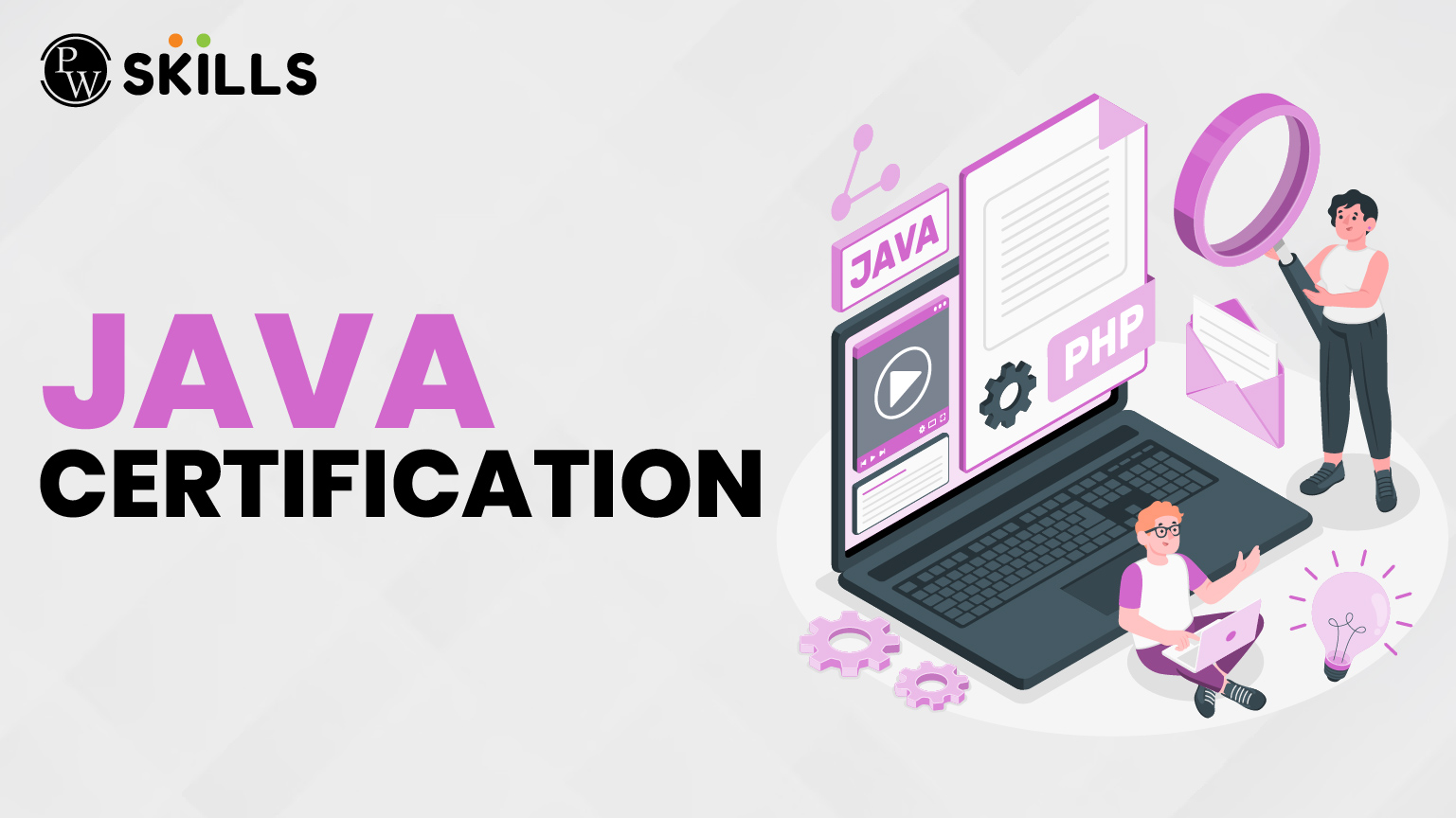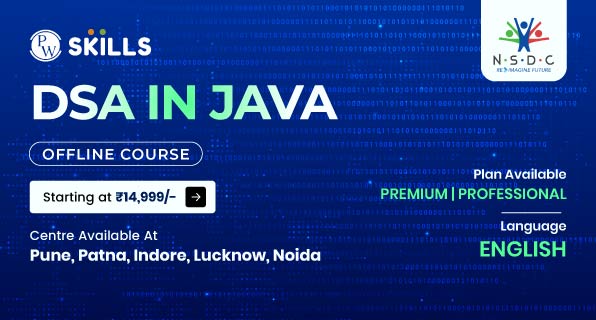You’ve spent months learning Java, building projects, and applying for jobs—but something’s missing. Despite your skills, you keep getting passed over for opportunities. Sound familiar?
The bitter truth is that being a Java developer today is no easy task; you will have to prove it. That’s where much conversation about Java Certification comes in.
A Java Certification will not be treated just as a paper, but a rocket propellant for your career. Certified Java developers get better salaries; they get jobs faster and gain immediate credibility with the employer. But how do you decide which way to go with so many options? And what are the roadmaps for preparation?
This ultimate guide will cover every subtlety of Java Certification-from what it exactly is to step-by-step instructions on getting a Java certification that actually lands you a job.
Why Knowing Java Is Not Enough Anymore?
The tech job scene is harsh, face it. Recruiters receive hundreds of applications for every Java developer role. So on what basis do they separate the really interested professional from the heap of half-hearted ones within hours, if not minutes?
They look for certifications.
Almost three things that could help your career are:
- Proves Your Skills Aren’t Just Theory – Anyone can claim they “know Java” in their resume. A certification shows you have passed tests validated by industry leaders such as Oracle.
- Gets You Past Resume Screeners – Most companies have automated systems to filter out uncertified candidates from the visible resumes.
- Opens Doors to Higher Salaries – On average, certified Java developers earn 20-30% more than their uncertified counterparts with similar experience.
But not all certifications are equally good. Let us explore different Java certification paths and help you spend your time and money wisely.
The 4 Key Java Certifications
The Oracle certification program is a systematic approach to proving one’s Java certification; however, it does not stop there. Whether you prefer official certifications or learn by doing, here’s your complete guide to taking your Java career to the next level.
Oracle Certified Associate (OCA) – The Foundation Builder
Best suited for: Beginner and self-taught coders in need of structured verification
Key Areas of Focus:
- Core Java syntax and operators
- Basics of Object-oriented programming
- Flow control and exception handling
Why It Matters:
Certification at entry-level proves to have understanding of fundamentals of Java-the building blocks that every developer requires. Many do have OCA for getting their skills validated by prospective employers, having gone through bootcamp.
Exam Tip: The OCA exam thrives on tricky questions pertaining to basic concepts like overflows for integers and String immutability. Drill these fundamentals.
- Oracle Certified Professional (OCP)-the career booster
Best suited for: Experienced developers with at least a year who are prepared for advanced roles
Focus Areas:
- Collections Framework and Stream API
- Concurrency and multithreading
- JDBC and database connectivity
Career Impact:
This is where the real payoff starts coming up for certification. Most mid/senior Java job openings list OCP as either a required or highly preferred.
Ongoing Real World Benefits: Callbacks to OCP holders have jumped by 2-3 times even compared with non-OCP developers of a similar experience.
- Oracle Certified Expert (OCE)-The specialization play
Ideal for: Developers looking to specialize in specific Java domains
Specialization Track:
- Java EE (Enterprise Edition)
- Web Services and REST APIs
- Mobile Development (Java ME)
Strategic Advantage:
These certifications make available the option of being the go-to person for high-value projects. E.g., as OCE in Java EE would mean one would be indispensable in the banking/finance tech roles.
Pro Insight: Many architects combine multiple certifications such that they become a “full-stack Java expert”.
- Oracle Certified Master (OCM)-The Pinnacle of Java Excellence
Best for: Senior developers and technical architects
Focus Areas:
- JVM internals and performance tuning
- Security architecture
- Large-scale system design
Elite Status:
This means that below 5% of Java developers achieve this certification, thus signaling instantly top-level proficiency. These are the kind of engineers who lead engineering teams at Fortune 500 companies.
The Reality Check: This means not just passing examinations, but putting forth actual real-world solution designs to be evaluated by Oracle.
Join our Full Stack Development Telegram channel for exclusive updates and tips!
5 Creative Ways to Use Your Java Certification
Do you have a certification? Rather than adding it to your CV, use it strategically:
- LinkedIn Optimization: In your headline, use the badge (e.g., “OCP Java SE 17 Certified | Backend Developer”).
- Freelance Credibility: Platforms such as Upwork give preference to certified developers in their ranking for searches.
- Teaching Opportunities: Very few aspirants are paid for coaching, and many are able to earn $500/month or more while still being in employment.
- Salary Negotiation: If certified, ask for a 15-20% raise at review time.
- Global Mobility: Certifications are recognized everywhere, thereby facilitating searches across borders for jobs that offer visa sponsorship.
Java Certification vs. Degree: Which One Holds More Weight?
It is an age-old debate whether to spend 3-4 years earning a computer science degree or 3-6 months receiving Java Certification. Let’s take a look:
Industry Demand: In earlier times, a computer degree from a well-known university would guarantee an entry-path into a tech company. Nowadays, however, many tech companies (especially startups and mid-sized firms) are leaning more toward skills rather than degrees. A Java Certification often acts as hard proof of those very skills.
- Time & Cost Efficient: A degree would likely take 3-4 years to accomplish while a well-studied certification can be achieved in anywhere from 3 to 6 months.
- Hybrid Affairs: Favorable candidates often find themselves double-dipping-a degree for representing foundational knowledge and certifications for specialized and up-to-date skills.
- Ruling & Conclusion: For immediate job-readiness, a Java Certification gives much faster ROI; but in the longer run, a degree offers theoretical depth that would help in one’s career growth, especially when it comes to research or academia.
Java Certifications for Non-Developers: Who Benefits from It and Why?
Surprisingly these roles get value from Java certification:
- QA Engineers: High level test automation needs proficiency in Java.
- DevOps Professionals: Java-debugging in CI/CD pipelines becomes easier.
- Technical Managers: Obtain respect from engineering teams because they understand issues with engineering.
Key Takeaway: Certification builds cross-functional credibility even if you do not code daily.
Also Read:
- Java Native Interface Explained: 14 Outstanding Components to Know
- 7 Key Concepts to Master Java Concurrency: A Human-Centric Tutorial
- Java Reflection & The Outstanding 3 Step Guide
- Java Collections Framework: A Beginner’s Guide
The Practically-Attainable: PW Skills DSA Java Course
The PW Skills DSA Java Course is a powerful alternative for those learners who like to attempt hands-on knowledge rather than examinations:
What It Is Unique for:
- Implementation of Data Structures & Algorithms using Java.
- Fostering the problem-solving ability by completing coding challenges.
- Knowledge of real-world system design patterns practiced in top tech companies.
Ideal For:
- Developers who learn better through coding than exams.
- Aspirants for positions in companies where DSA interviews are particularly rigorous (FAANG, etc.)
- Professionals who would wish to sharpen their core programming logic.
Certification Benefit: While this is not an Oracle Certification, the course offers a PW Skills credential that demonstrates Java and DSA competence in a practical setting-competence highly sought after by several employers.
Join our Full Stack Development Telegram channel for exclusive updates and tips!
Absolutely! Java remains one of the most in-demand programming languages. Most beginners need 3-6 months of preparation for entry-level OCA, while experienced developers can earn OCP in 1-3 months with consistent study. Yes! The Oracle Certified Associate (OCA) is designed for beginners. However, hands-on coding practice is essential to pass the exam and succeed in real-world roles. Java Certification (Oracle): Focuses on standardized exams and industry-recognized credentials. PW Skills DSA Java: Emphasizes hands-on coding, problem-solving, and interview prep for practical job readiness.FAQs
Is a Java Certification worth?
How long does it take to get Java certified?
Can I get a Java Certification without experience?
What’s the difference between Java Certification and PW Skills DSA Java?


